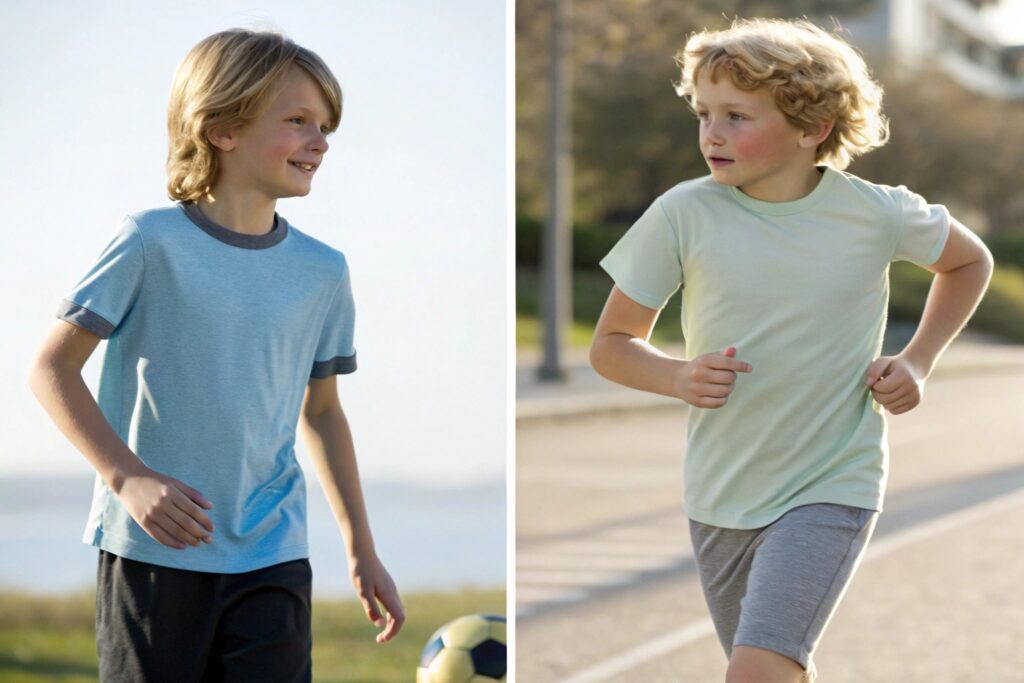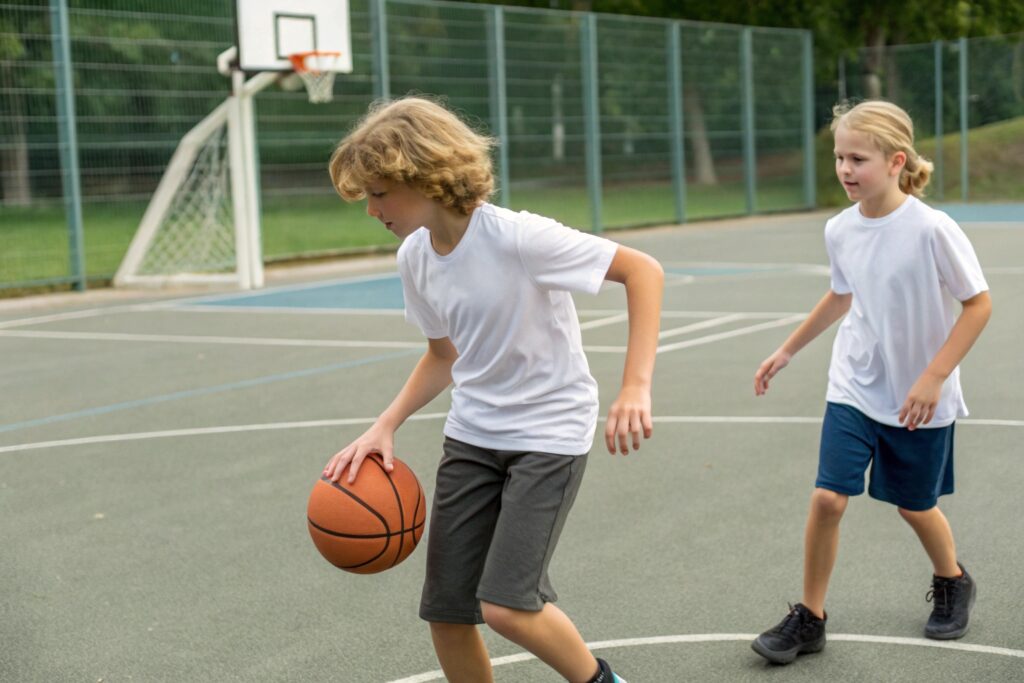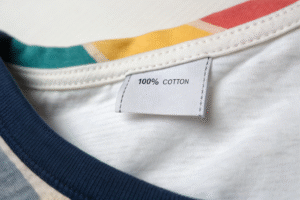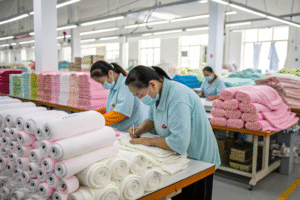When choosing t-shirts for children, fabric matters. Between 100% cotton and 100% polyester, which one is actually better for kids?
Both cotton and polyester have their benefits, but for kids’ daily wear, 100% cotton is generally preferred for comfort and breathability. Polyester is more durable and moisture-wicking, making it ideal for sports or play.
Let’s explore the pros and cons of each fabric and help you decide what’s best for different occasions.
What Is Better, 100% Cotton or 100% Polyester?
These two fabrics dominate the kidswear market. But how do they compare?
100% cotton is better for softness and breathability, while 100% polyester is better for durability and moisture control. The right choice depends on the child’s activity and the shirt’s purpose.

Key Differences Between Cotton and Polyester:
| Feature | 100% Cotton | 100% Polyester |
|---|---|---|
| Comfort | Soft and breathable | Smooth but less breathable |
| Durability | Wears out over time | Highly durable |
| Moisture Control | Absorbs moisture | Wicks moisture away |
| Sensitivity | Hypoallergenic, gentle | May irritate sensitive skin |
| Shrinkage | Shrinks in hot wash | Resistant to shrinking |
| Eco Impact | Biodegradable | Synthetic, not biodegradable |
When to choose which?
- Choose 100% cotton for toddlers, sleepwear, or sensitive skin.
- Choose 100% polyester for activewear, school uniforms, or sports kits.
For many kidswear brands, the perfect solution is a cotton-polyester blend that balances comfort with function.
Which Is Better Cotton or Polyester Shirt for Kids?
Not every shirt is worn the same way. So which fabric is better for children’s everyday clothing?
Cotton shirts are better for comfort and safety, especially for young kids. Polyester shirts are better for play or sports due to their resistance to stains and wrinkles.

Use Cases:
| Situation | Recommended Fabric |
|---|---|
| Daily wear | Cotton |
| School PE class | Polyester or blend |
| Outdoor play | Polyester |
| Naptime or bedtime | 100% Cotton |
Why comfort matters for kids:
- Children move constantly.
- Irritated skin can lead to distraction and discomfort.
- Parents prefer easy-care fabrics, but won’t compromise on softness.
At Fumao, we help brands choose fabrics based on age range, climate, and purpose, ensuring each piece is both practical and safe.
Which Is Warmer 100% Cotton or 100% Polyester?
Temperature regulation is important, especially for kids who overheat or chill quickly. So which fabric is warmer?
Polyester is warmer than cotton because it retains heat better and doesn’t absorb moisture. Cotton is cooler, more breathable, and better for hot climates.

Warmth Comparison:
| Feature | Cotton | Polyester |
|---|---|---|
| Breathability | High | Low |
| Heat Retention | Low | High |
| Best for Summer? | ✅ Yes | ❌ Less suitable |
| Best for Cold? | ❌ Less suitable | ✅ Yes |
Which one to pick for each season?
- Summer: Cotton is the winner for keeping kids cool.
- Winter: Polyester provides more insulation—especially in layered pieces.
For colder months, many kids’ shirts use polyester on the outer layer and cotton on the inner side for a warm-yet-comfortable feel.
Is a 100% Polyester Shirt Good for Kids?
You’ll find many children’s t-shirts made with polyester, especially in sports stores. But is it truly suitable?
Yes, 100% polyester shirts are good for kids in active or messy situations. They are durable, stain-resistant, and dry quickly. However, for long wear or sensitive skin, 100% cotton is usually better.

Benefits of polyester for kids:
- Resists wrinkles and stretching
- Lightweight and quick-drying
- Ideal for uniforms and jerseys
Downsides:
- Can feel hot or itchy
- Not breathable for long-term wear
- Not biodegradable or eco-friendly
| Use Case | Polyester Shirt Status |
|---|---|
| Sports/Gym | ✅ Great fit |
| Travel/Backpack days | ✅ Easy to pack |
| Sleepwear | ❌ Not recommended |
| Sensitive skin | ❌ May cause discomfort |
If parents are looking for practical, easy-care shirts for active kids, polyester is a great solution—just not for every situation.
Conclusion
Both 100% cotton and 100% polyester have their place in kids’ t-shirts. Cotton wins for comfort and breathability, making it ideal for everyday use. Polyester excels in durability and function, perfect for sports or school uniforms. The best choice depends on the child’s activity, sensitivity, and environment.










